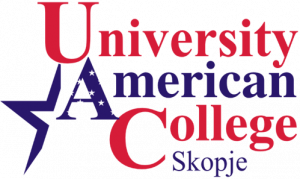WHO WE ARE
Our Department offers a rich academic curriculum that exposes our students to the cutting-edge knowledge in the field of psychology. It provides students with a unique experience that enables them to explore and understand psychology as a science and as a profession. The sources are design to provide theoretical insight and ability to use critical thinking in the application of psychological principles in the various aspect connected to the psychological functioning of people. By drawing on the rich professional and extensive academic achievements of our team, students gain practical skills and expand their decision-making capacities.
WHAT WE STAND FOR
- We create professionals who are capable of dealing with modern-day challenges in various areas of psychology, especially those related to education, health and business.
- Our courses are carefully designed to tackle some of the most important issues of modern psychology.
- We have a well-balanced combination of theoretical and practical knowledge delivered interactively by professors, experts and practitioners.
- We create a vivid environment for continuous interchange of professional experience among international professors, guest speakers and students.
- We offer an exceptional mix of the best practices of European and American educational systems.
- We involve our students in international research projects and activities.
- Our students benefit from the opportunity to take part in the Erasmus+ European Mobility Program and spend a study semester at one of our partner universities in Europe.
OUR FACULTY
Our Department champions a well-balanced combination of theoretical and practical knowledge delivered interactive by professors and psychology professionals. It creates a vivid environment for continuous learning and interchange. Our faculty members have excelled as reputable scholars and researches, and some have an extensive professional experience as psychologists and therapists as well.
OUR ACADEMIC PROGRAM
The Department of Psychology offers an ambitious and innovative study program in psychology, which aims to prepare the students for building a successful career and becoming professionals in their field. The study program prepares the students to cope with real-life situations, and it also helps them exploit the employment opportunities in the field of psychology.
EXPECTED LEARNING OUTCOMES UPON GRADUATION:
- Knowledge and understanding of the key concepts, principles and theoretical perspectives related to the psychological functioning;
- Ability to interpret scientific findings, test results and psychological reports in various areas;
- Ability to use scientific and psychological reasoning in analyzing psychological
- phenomena in various areas, especially in educational and work environments;
- Ability to design small scale research and decide on proper use of health and psychological instruments;
- Communication skills to publicly express views and knowledge on psychological issues in professional and non-professional discussions.
- Ability to identify the needs for continuous learning by using electronic data bases,
- scientific works, open-access publications and internal reports on psychology.
OUR TEACHING PHILOSOPHY
Our aim is not to teach theory and facts only, but also to enable the students to apply their knowledge and gain practical skills. Along with lectures, we use advanced teaching tools such as:
- Case studies
- Role plays
- Simulation exercise
- Solving practical problems
- Individual and team projects (research papers, analyses, clinical reports)
Small size groups enable every student to actively participate in the learning process. Class discussions are an essential part of each course. We are proud that our students gain knowledge and skills that enable them to immediately enter the real world.
TITLE AND DEGREE
Upon completions of the four-year undergraduate study program (240 ECTS credits), the students earn the degree of:
- Bachelor of Arts in Psychology
GIVING BACK TO COMMUNITY
Our programs also nurture social responsibility in students, inviting them to respect the community they live in by being responsible members of society. This is why UACS organizes a range of socially responsible events and projects in which students are actively involved.
EMPLOYMENT POSSIBILITIES
Graduates may work in a variety of settings, including privately owned companies, public companies, in the non-governmental sector, international organizations, the national health system, public health, private clinics, schools, industry, academia, or pursue further training or study. They can be a part of:
- International and domestic organizations aimed at improving the educational system as well as state, local, and private institutions in the field of education including kindergartens, schools and non-formal education institutions;
- Domestic and international business organizations including research agencies, marketing agencies, and human resource management sectors within organizations;
- Non-governmental, governmental and foreign organizations offering psychological support, help and counseling to various groups of people.
UACS BUSINESS COUNCIL
The cooperation with the UACS Business Council is a key factor in developing highly professional staff for the real world. The UACS Business Council is comprised of 150+ leading institutions, organizations, and companies from various professional backgrounds. Providing adjustments of the curricula to the needs of contemporary process and policies, the UACS Business Council is an additional opportunity for career development of the UACS students.
*The University American College Skopje reserves the right to amend the program

University American College Skopje
info@uacs.edu.mk
+389 2 246 3156
Boulevard III Makedonska Brigada 60, 1000 Skopje
